CASA BLOGS
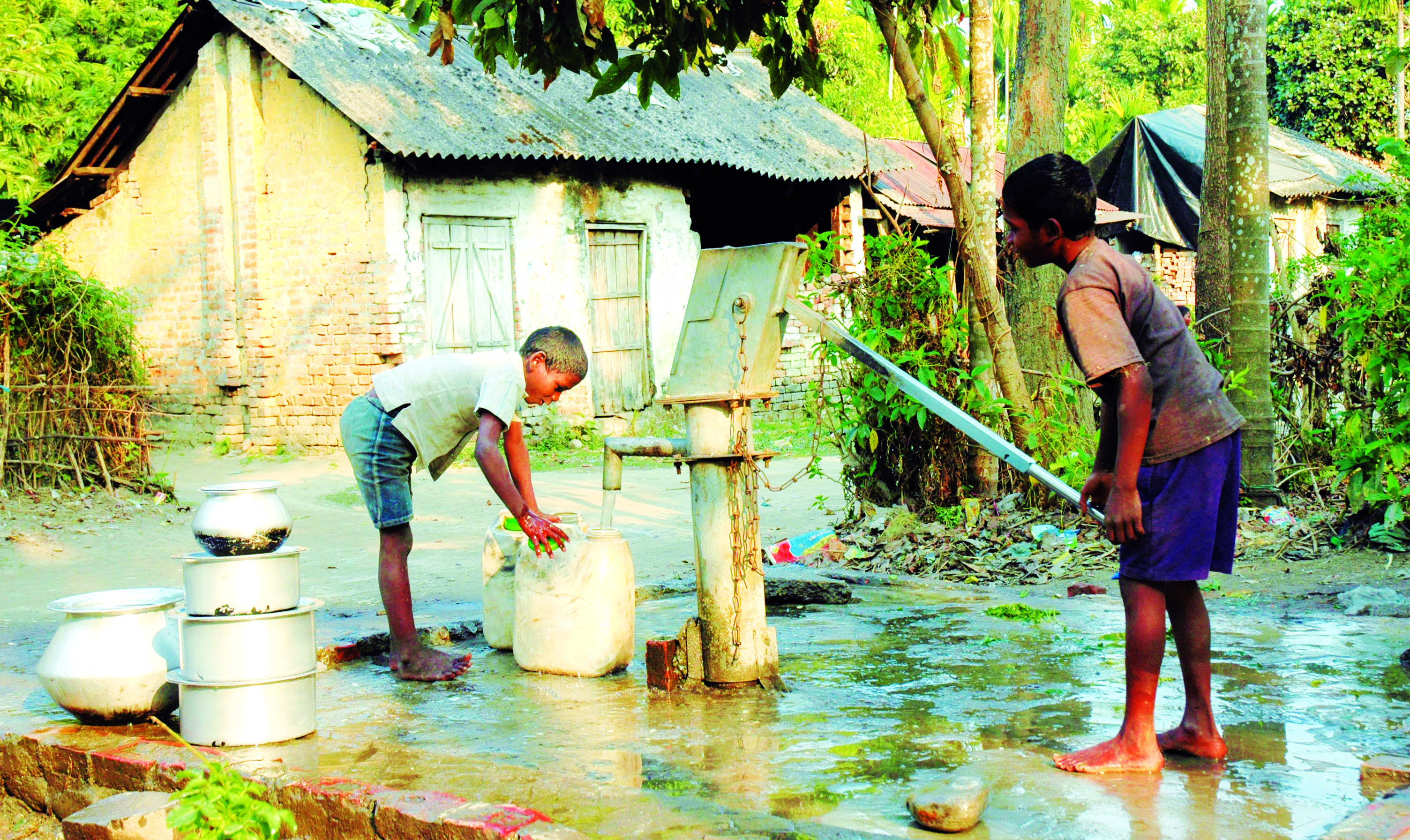
Living on the edge: Children of Tea Gardens
BY DEEPAK SINGH
“There is no trust more sacred than the one the world holds with children. There is no duty more important than ensuring that their rights are respected, that their welfare is protected, that their lives are free from fear and want
and that they can grow up in peace.” Kofi Annan
Background
According to a survey conducted by the Regional Labour Office of North Bengal, a total 1, 86,559 families with a population of 11, 24,907 resides in 276 organized tea estates of North Bengal. This includes 60% population of children and old age persons in the Tea Estates of Hill, Terai and Dooars. There are 2, 18,968 daily rated and 8, 72,938 non-workers. Mostly (90%) from the tribal communities, the tea workers were brought by the British as the local populations were then reluctant to join the plantations. This tribal population has been living in these gardens for generations, tracing their lineage to their forefathers from what are now Jharkhand, Odisha, Chhattisgarh and also Nepal.
The Tea Estates (TEs) are being regulated through Plantation Labour Act 1951. Though the Act provides a basic framework for the welfare and protection of the tea workers, there is no Labour Welfare Officer in 175 Tea Estates (RLO, 2012). For the past one and a half decade, closure of tea gardens, dispute between workers and the management, and complex political dynamics has produced extreme vulnerability, destitution, starvation, malnutrition, suicides, migration, trafficking and child labour in these tea gardens.
To deal with the situation, the Labour Commissioner Office of North Bengal has been facilitating negotiations between workers and management without much progress. However, a few tea gardens have re-opened with negligible work opportunities and inadequate wage payment. MGNREGs work has also been introduced under supervision of Operating Management Committees (OMCs) to rejuvenate production capacity of the tea gardens. But, late payment of wages in MGNREGs and mismanagement of OMCs discourages workers to participate in it.
Consequently, irregular work availability in tea gardens, inadequate income and the absence of alternative livelihoods in the area has created a complete helplessness among plantation workers. The impact of such vulnerability has been seriously observed in children and elderly persons in terms of their survival, protection, participation and development.
Interaction with workers and children in Madhu, Kathalgudi, Chamurchi and Torsa Tea Estates provides quite a grim picture of the conditions in which workers are living in these TEs.
Realities:
In Torsa TE, it was found that almost every house is damaged by the wild elephants and children and elderly persons remain in these houses without any protection. It was reported Condition of houses in Torsa TE that the workers neither got any assistance from the management nor any benefit from Indira Housing Scheme (IAY) to repair their houses. The housing conditions were the same in many TEs too, as 37 TEs in the area did not spend a single penny during last four years.
With the help of Civil Society Organisations (CSOs) and after a long struggle against corrupt dealers, local SHGs are running PDS shops in these TEs. Consequently, families were able to get subsidised rice and wheat for food. Children also reported that they are having 3 meals a day. However, when their houses were visited, it was found that 3 time food means only boiled rice and salt with rarely available vegetable. This food intake comes under severely food insecure and emergency phase of CARI1 or IPC indicators A family in Jattu lane of World Food Programme and households indicate huge economic vulnerability and asset depletion. It was encouraging to see on the spot that ICDS and Midday meal centres were providing fresh cooked food to children, even on school holidays, though the ICDS in-c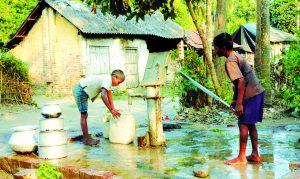 harge accepted that 95% pregnant women and children are anaemic and malnourished in TEs.
harge accepted that 95% pregnant women and children are anaemic and malnourished in TEs.
It was found that children are forced to go to home for water and toilet as no toilet and water facilities are available in Kathalgudi primary school. Water has been a big problem in the TE as old pipelines are defunct and there is no provision for maintenance. Consequently, children especially, girls spend maximum time in fetching water from far off places that affect their schooling.
During rainy season it becomes extremely difficult as roads in some of the villages like Chamurchi are almost non-existent. Non availability of water in school has been affecting academic efficiency and interest of the children going to school. Children, who go to a nearby town for higher secondary schooling, feel distressed as they find it very difficult to meet the cost of daily transportation. Consequently, many young boys and girls have been reported to discontinue their education.
Adolescent girls in Madhu & Torsa TEs explained awful sanitary conditions of the toilet in their school as it is cleaned fortnightly. ‘On the one side, girls get inadequate and innutritious food, on the other such sanitary condition is enough to make us ill’, said Debotry Cheekbadai, an 11 year old girl from Madhu TE. Due to closure of TEs, neither management nor OMCs are concerned about the basic facilities in the schools. A number of cases were reported from every TE on migration of teenage boys and girls, due to distress household conditions, to support their helpless grandparents in Torsa Tea Estate with UID of their granddaughter who is reported to be sold in a bar
families.
Most of them are believed to be in Tamil Nadu, Kashmir, Haryana and Sikkim without any contact detail. Parents of these children are illiterate and have no idea of the outer world, therefore struggle to approach government institutions to seek help. Further, most of the children were staying with their grandparents as their parents are either passed away or they have abandoned them for another marriage. The grandparents find it difficult to travel and find their children.
Amidst gloomy situation, few encouraging initiatives were also observed. As a result of the visit of the West Bengal State Advisor to Supreme Court Food Commissioner with civil society to closed tea estates and subsequent meetings with the higher authorities of WB government in Kolkata, a midday meal scheme called ‘Sahay’ has been launched to tackle starvation and hunger situation in tea gardens.
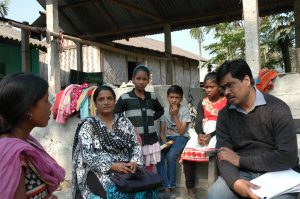 The scheme provides free meals to destitute old-age persons as well as those who don’t have any source of income. Local SHGs execute the scheme and gets Rs. 20 per meal for providing fresh midday meal to selected persons in tea gardens. However, it has been considered just an emergency response rather a permanent solution as beneficiaries fear that it will change with the change of government in the state.
The scheme provides free meals to destitute old-age persons as well as those who don’t have any source of income. Local SHGs execute the scheme and gets Rs. 20 per meal for providing fresh midday meal to selected persons in tea gardens. However, it has been considered just an emergency response rather a permanent solution as beneficiaries fear that it will change with the change of government in the state.
CASA and its partners ‘Rural Aid’ and ‘JCDHI’ have been working in the area since 2003 to support children, women, and old age persons by engaging them in timely delivery and monitoring of ICDS, MDM, PDS and now Sahay scheme. Local SHGs have been mobilized for the effective distribution of food from these schemes. Asha workers have been motivated to visit each household and prepare health chart of the pregnant women, and arrange an ambulance for delivery. Consequently, 100% cases of child delivery take place in government hospitals, family of the child doesn’t have to pay for the transport cost and mother gets Rs. 1000 for her immediate nutrition needs. Further, Rural Aid and JCDHI have ensured that each village has a children’s group that meets frequently, arrange social and sporting events, and help each other in distress. It was moving to know from the children Karishma Children club in Torsa TE is determined to complete their education despite heavy odds and child labour that 90% of them are child labour and work in a stone-quarry @ Rs. 40 for a block of stone.
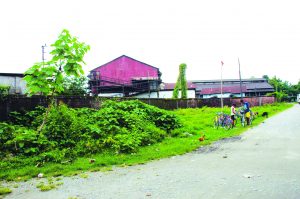
They have to find a stone from the river, shape it in a block and give it to the contractor. The whole process takes 1-2 days for one block. However, they feel happy as it supports their family and provide some income for their education. Through these clubs, children are able to understand trafficking in the area. Debotry, age 11, explained that ‘if someone asks us to go with him/her for good job we immediately inform our parents and other relatives…take the address and phone number of the person for police verification….keep the photo id of the person’.
Conclusion:
Conditions in the TEs are dreadful as workers live in extreme anxiety for regular work and timely payment of wages in tea gardens. As TEs occupy 80% land under legal protection, there is no possibility for alternative agriculture activities in the area. Workers are trained and skilled to work in tea gardens only therefore, unable to find work in other industries except as daily wage workers in the construction industry in other states or bordering country.
Lack of income and distress situation in the families creates psycho-social impact on children, and the absence of parents create extra burden on destitute old aged persons for child care. The Panchayat system is completely dysfunctional and Gram Sansad /Sabha have never taken place in the area. Consequently, selection of beneficiaries for BPL card, PDS card, Indira Awas Yojna, Pension schemes, MGNREGs work and unemployment allowance is unknown, monitoring through school, health, forest and land sub-committees are completely missing, and no village plan has ever been prepared by the people to solve housing, water, sanitation and roads problems in the village.
It is high time to prioritize development of men, women, children and destitute old age persons living in the TEs. It is imperative to restore dignity and identity of this population as ‘Tea workers’ through the strict enforcement of Plantation Act and all subsequent agreements between government and the management of TEs for workers’ welfare.
Since 90% of the population in TEs belong to tribal communities, more active role of the WB Tribal Development Corporation and budget under the tribal sub-plan is required to be spent with firm monitoring to restore ‘Tribal Asmita’.
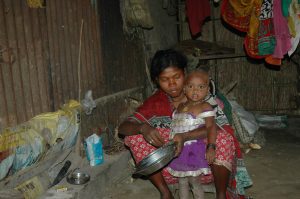
Further, there is an urgent need to review the land policy of the state in this area from the tribal perspective for their permanent livelihood solution through land distribution. Finally, in the current situation, child and old-age care cannot be seen in isolation by ignoring other critical facets, therefore, the role of Panchayat Raj, especially Gram Sabha/Sansad is extremely critical to implement and monitor government welfare programmes related to education, food, water, health, sanitation, road, employment, pension, and housing to enjoy basic rights as citizens of the country. Civil society in the area must focus on this aspect and help people and local institutions in strengthening of local self-governance in the area.
Note: This article is based on site visits and interactions with children, workers (women and men) and elderly persons of 4 TEs in North Bengal, 16-18 January 2017.
Featured Post
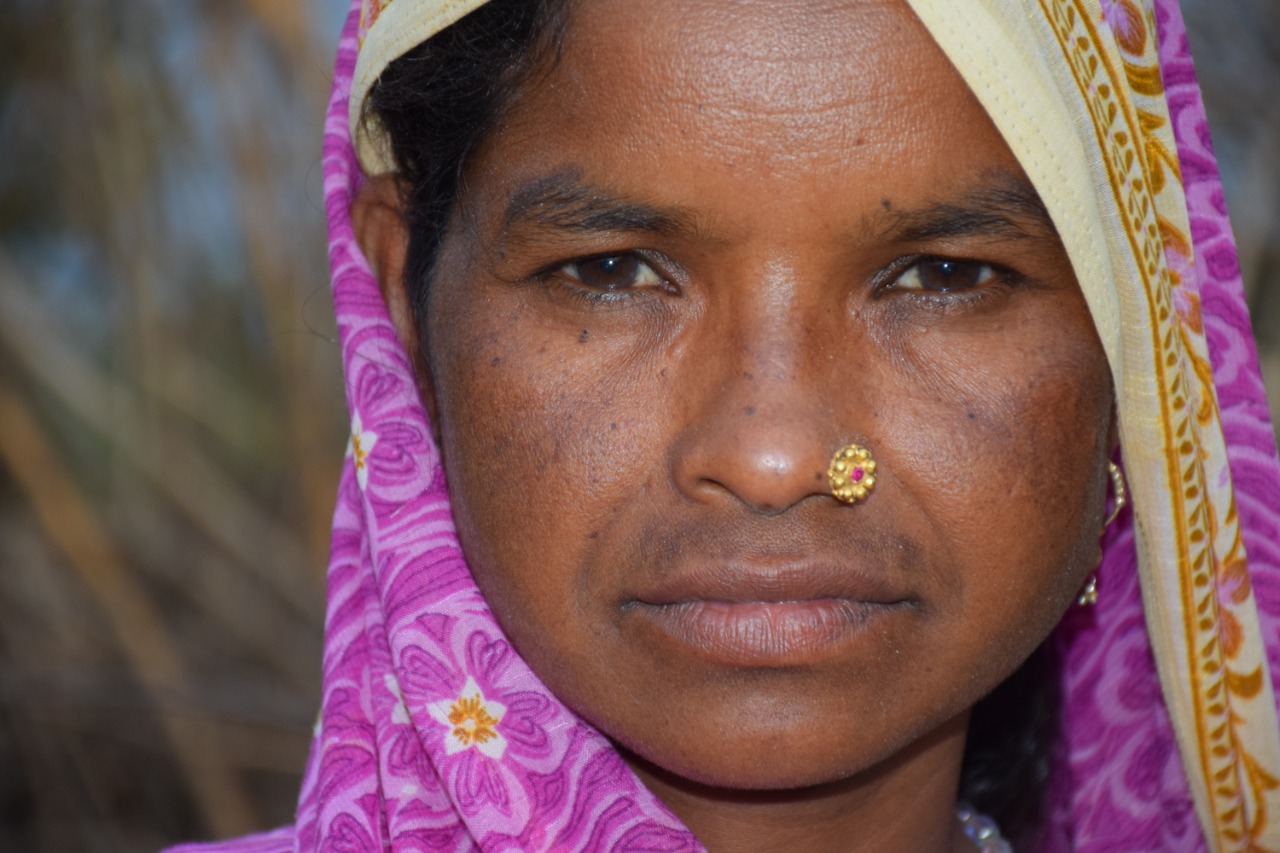
Mental Health Awareness in India: Addressing Key Challenges
8 Nov 2024
Mental health awareness is crucial in India, where millions silently struggle with mental health disorders, including depression, anxiety, and bipolar disorder. Despite growing recognition, India faces unique challenges in effectively addressing mental health issues. The stigma associated with mental illness remains a primary barrier. In Indian society, mental health issues are often misunderstood, leading to […]

Ensuring Girls’ Safety in India: A Path Toward Empowerment
20 Aug 2024
Girls’ safety in India remains a critical issue that has garnered increasing attention over the years. Despite various reforms and efforts from both government and civil society, challenges persist. From street harassment to domestic violence, gender-based discrimination continues to limit the freedom and safety of girls. While significant progress has been made in addressing these […]
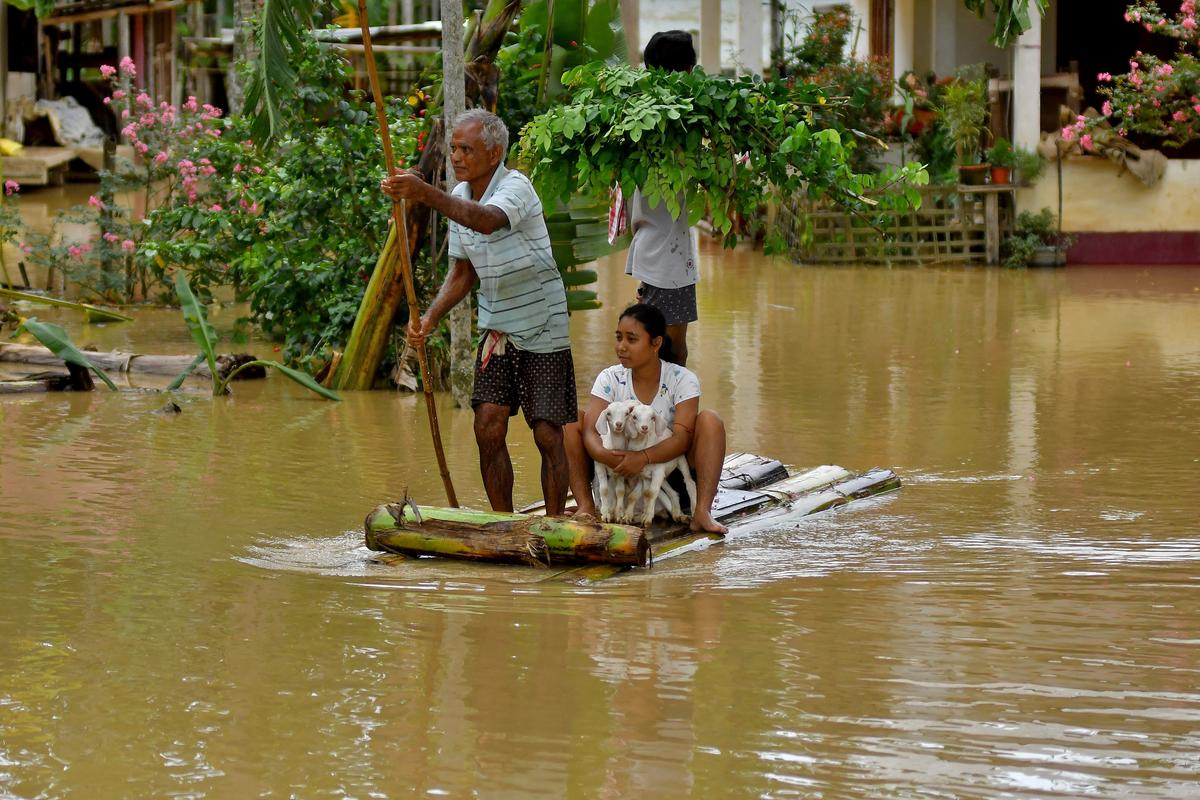
The Connection Between Monsoons and Floods in India: An In-Depth Analysis
9 Jul 2024
India, a land of diverse climates and geographical features, relies heavily on the monsoon season for its agricultural and water resources. However, with the benefits of the monsoon rains come significant challenges, particularly in the form of floods. This blog explores the intricate relationship between the monsoon season and flooding in India, providing detailed insights […]



 Previous Blog Post
Previous Blog Post 
